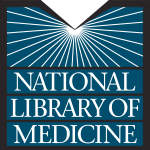- Industri: Library & information science
- Number of terms: 152252
- Number of blossaries: 0
- Company Profile:
The National Library of Medicine (NLM), on the campus of the National Institutes of Health in Bethesda, Maryland, is the world's largest medical library. The Library collects materials and provides information and research services in all areas of biomedicine and health care.
Measured or calculated dose of a substance to which an organism is likely to be exposed, considering exposure by all sources and routes.
Industry:Biology; Chemistry
Mechanisms by which the immune system is able to recognize and destroy malignant cells before the formation of an overt tumor.
Industry:Biology; Chemistry
Membrane-bound cytoplasmic organelle containing hydrolytic enzymes.
Note: Release of these enzymes from lysosomes damaged by xenobiotics can cause autolysis of the cell.
Industry:Biology; Chemistry
Metabolic formation of a highly toxic compound often leading to death of affected cells.
Industry:Biology; Chemistry
Method of active artificial elimination of toxicity consisting in complete replacement of blood of the patient by donor blood.
Industry:Biology; Chemistry
Method of artificial detoxication in which a toxic substance from the body is transferred into liquid that is instilled into the peritoneum.
Note: Effectively this represents the employment of the peritoneum surrounding the abdominal cavity as a dialysing membrane for the purpose of removing waste products or toxins accumulated as a result of renal failure.
Industry:Biology; Chemistry
Method of introducing substances into an organism avoiding the gastrointestinal tract (subcutaneously, intravenously, intramuscularly etc.).
Industry:Biology; Chemistry
Method of stimulating diuresis based on performing hydrational therapy, sometimes with parallel introduction of diuretics, with the aim of achieving increased clearance of a toxic substance in urine.
Industry:Biology; Chemistry
Methods and science permitting identification of the genes which influence individual variation in the efficacy or toxicity of therapeutic agents, and the application of this information in clinical practice.
Industry:Biology; Chemistry
Microscopic particle whose size is measured in nanometers, often restricted to so-called nanosized particles (NSPs; < 100 nm in aerodynamic diameter), also called ultrafine particles (see separate entry).
Industry:Biology; Chemistry
